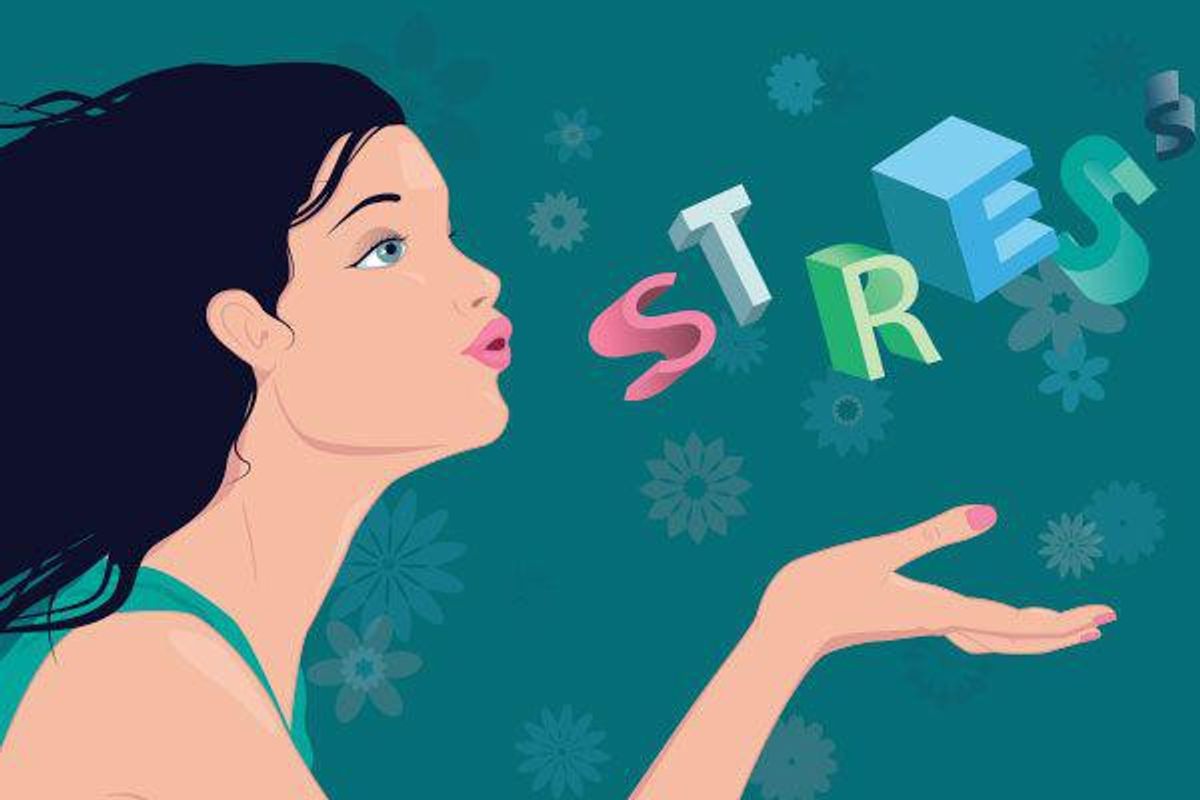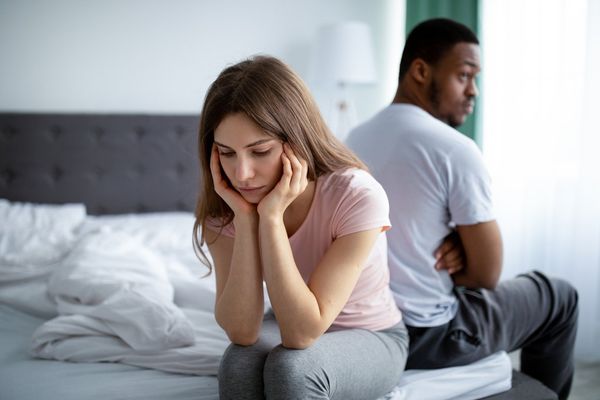As women age, their sex drive can change. Decreased interest and enjoyment are two major complaints associated with this change. Before you write these changes off to fluctuations in your hormone levels, you should appreciate a very special mind-body connection that directly influences your sexuality. It's how you worry, fret, and become anxious about your daily life. That's right, how you perceive your life can influence your interest in sex. How does this happen?
When a women feels that she is out of control in any aspect of her life, she can feel hopeless, helpless, and ultimately defeated. Animal studies have shown that when mammals experience this defeat reaction, it alters their sex hormone levels. Specifically, in females, estrogen plunges and decreases the female's fertility.
Women also secrete testosterone from their ovaries. Testosterone is a hormone secreted by both men and women and is linked to sexual desire. Yes, women do have testosterone, just not as much as men do. Adequate levels of testosterone are absolutely essential to maintain sexual responsiveness and function. The defeat reaction also decreases testosterone levels, and together with lower estrogen levels, seriously affect sexuality and fertility.
As her sex hormones decline and a woman perceives her life spinning away from her, the stress hormone, cortisol, increases and further inhibits normal reproductive function. What's the bottom line? In addition to infertility, sexual difficulties can affect your health and sense of well-being, threaten intimate relationships, and generally take the fun out of life.
This sexuality problem is widespread. A recent research study showed that sexual dysfunctions are increasing in the United States, ranging from 10% to 52% of men and 25% to 63% of women between the ages of 18 and 59. For women, sexual problems have a strong positive association with low feelings of physical and emotional satisfaction and decreased feelings of happiness. Emotional and stress-related problems among both women and men result in an increased risk of experiencing sexual difficulties.
Keep in mind that there are many reasons for sexual difficulties. Physical problems, if present, must be diagnosed and treated. Low desire, however, is frequently caused by the defeated feelings a woman may develop from being overwhelmed by her daily care giving responsibilities.
The good news is that once a woman realizes that she can't control everything, and that she needs to learn to calm herself in the midst of the hurricane of her daily activities, her sex and stress hormone levels normalize and sexual desire and fertility are restored.
If you or your partner is experiencing decreased interest in sex, here are some tips and techniques to help improve your situation:
- Sit down with your partner and fill in a timetable representing your typical week as a couple. Look at where the time goes, how much of the week is spent on family time (that is, with children), work time (at work/working around the house), extended family time (with parents/relations), social time, personal time, and relationship time (time spent together alone, as a couple). Guess what? Most couples find their personal time and relationship time are the first to go when life gets hectic. Reclaim this part of your life! You have spent time making exercise a priority in your life; now apply those same principles to your relationship. Be creative about spending more time together, for example, what if you exercise together?
- Work on communication. When it comes to sex, people make mountains out of sexual molehills. Talk with your partner: see what the issues are, how often he/she would like to have sex, what he/she would like to do, etc. It is vital to do this in a non-threatening way, outside of the bedroom!
- De-stress the bedroom. This is not an Olympic event. Not all physical contact must lead to sex, and good sex doesn't necessarily mean intercourse.
- Don't believe the hype! On TV, sex is natural, spontaneous, and earth shattering. In real life, you must make room and find time for it. Otherwise, when you get in bed you will sleep!
If you've gotten a clean bill of health from your doctor and none of the above tips seem to help, seek counseling. Therapy can identify issues you didn't even know you had. One example of a hidden issue for some women is losing all sexual desire after the birth of their first child. Women often make the responsibility of being a mother their highest priority, but some women received an additional message growing up: "Mothers are not sexual." Not true!
Approach the sex issue with patience and kindness, both toward yourself and your partner. Repairing and restoring intimacy take time, but your relationship is worth it!







